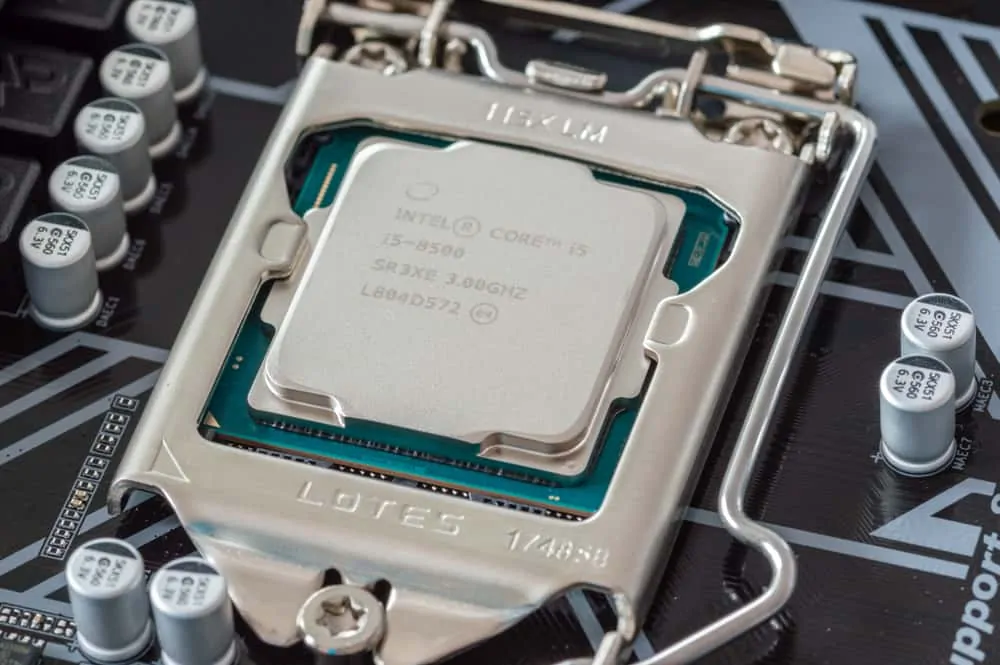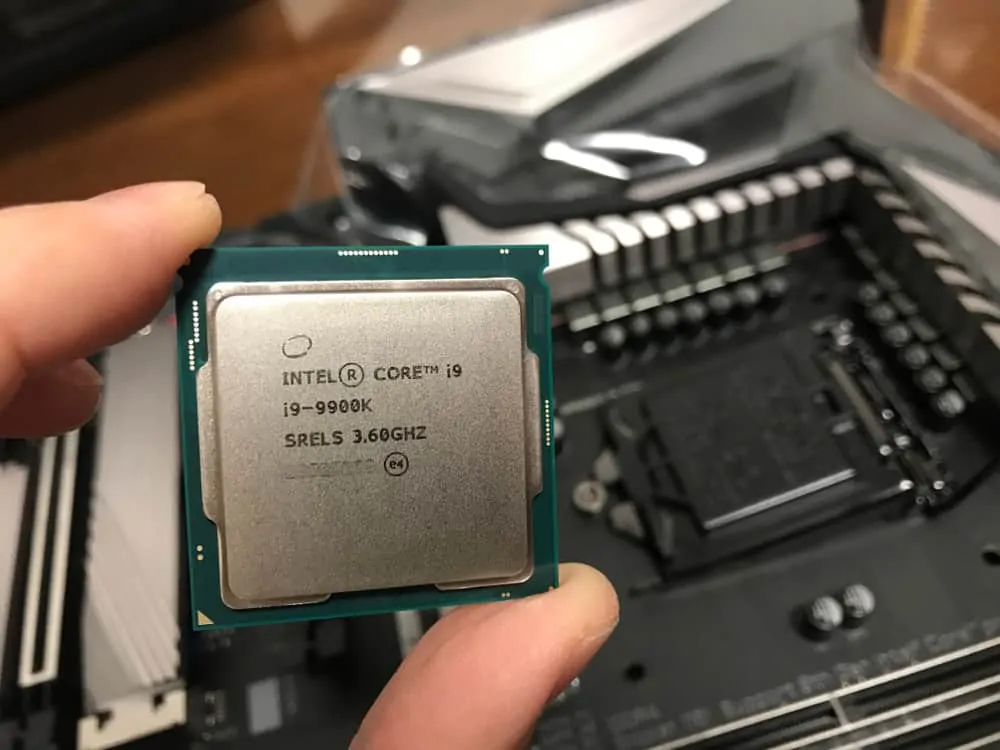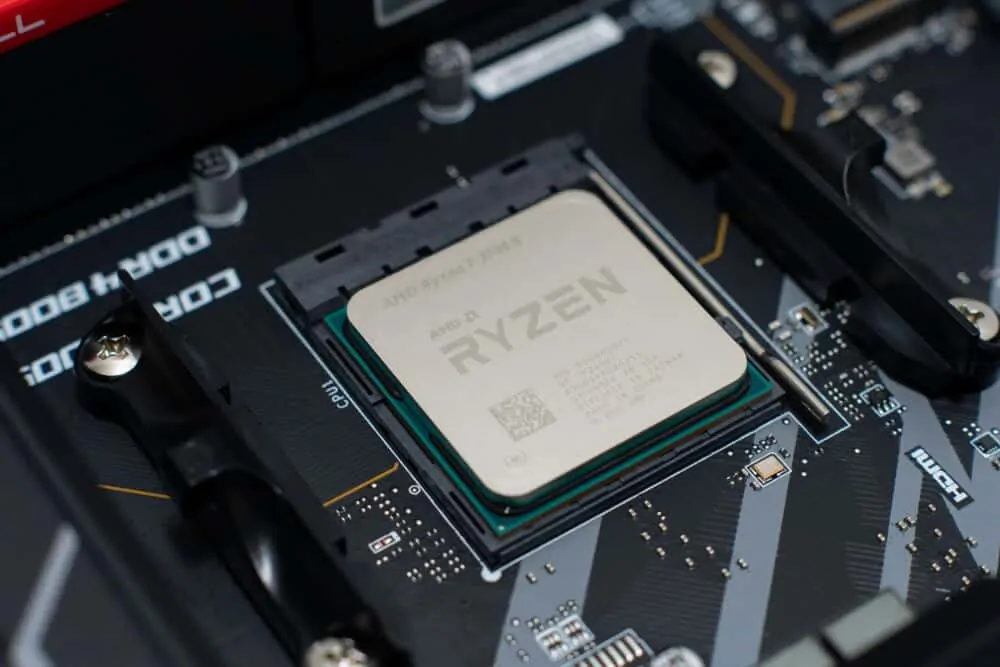Ryzen 7 2700X vs Ryzen 7 3700X: Full Specs Comparison
These tech specs may be a bit confusing. To help you differentiate the performance of the 2 processors, see the next 2 sections.
| Feature Name | Ryzen 7 2700X Specs | Ryzen 7 3700X Specs |
|---|---|---|
| Launch Date | April 2018 | July 2019 |
| Processor Collection | AMD Ryzen 7 Desktop Processors | AMD Ryzen 7 Desktop Processors |
| Processor Number | 2700X | 3700X |
| Number of Cores | 8 | 8 |
| Number of Threads | 16 | 16 |
| Base Clock Speed | 3.7 GHz | 3.6 GHz |
| Maximum Clock Speed | 4.3 GHz | 4.4 GHz |
| L3 Cache | 16 MB | 32 MB |
| Max Supported Memory | 64 GB | 128 GB |
| Supported Memory Type | DDR4 | DDR4-320 |
| Max Number of Memory Channels | 2 | 2 |
| Max Memory Bandwidth | 43.71 GB/s | 47.68 GB/s |
| Ryzen 7 2700X vs i7 9700K* Prices | from $237.99 | from $279.99 |
Ryzen 7 2700X vs Ryzen 7 3700X: Performance Comparison
This section compares performance features of Ryzen 7 2700X vs Ryzen 7 3700X processors – Cores and Threads, Maximum Clock Speed, L3 Cache, and Max Supported Memory.
The purpose of this session is to compare the core features that affect the performance of a processor. This will make it easy to determine the processor that is better.
This section compares the 2 processors for Cores and Thread, Frequency, Cache, and Supported Memory. In the next section, I give my final verdict and the processor that won the overall contest.
Number of Cores and Threads
Starting my Ryzen 7 2700X vs Ryzen 7 3700X performance comparison is a detailed evaluation of the number of cores and threads of both processors. Processor “Core” defines the number of independent CPUs (central processing units) in a single processor chip.
Unlike Cores, which define the number of CPUs, Threads is the number of sequences of instructions that a single CPU core can handle. Both features determine the performance of a processor. The more cores and Threads the faster a processor.
Ryzen 7 2700X and Ryzen 7 3700X are both 8-core, 16 threads processor. Comparing the 2 processors for Cores and Threads, they offer the same features.
Maximum Clock Speed
The next processor performance feature is its maximum clock speed. This is the number of tasks a processor can complete in one processor processing cycle.
Processor manufacturers specify the base processor speed. They also specify the maximum speed of a processor. The base speed is the “normal” clock speed of a processor while the maximum clock speed is the fastest frequency the processor can support.
In comparing processor performance, we use the maximum clock speed. AMD Ryzen 7 2700X has a base speed of 3.7 GHz but it can go up to 4.3 GHz. However, Ryzen 7 3700X has a base clock speed of 3.6 GHz but it can be configured to clock up to 4.4 GHz. The difference in maximum clock speed is marginal. I will, therefore, make this a tie.
L3 Cache
The 3rd feature in my Ryzen 7 2700X vs Ryzen 7 3700X performance comparison is cache. The size of a processor’s cache affects the performance of the processor. A processor has 3 cache levels – 1, 2, and 3. For the purpose of this comparison buying guide, I use the level 3 (L3) cache.
The more the L3 cache available to a processor, the faster a processor can potentially complete processes faster. Ryzen 7 2700X has an L3 cache of 16 MB MB. However, Ryzen 7 3700X has an L3 cache of 32 MB. Based on L3 3 cache, Ryzen 7 3700X is a better processor.
Max Supported Memory (RAM)
Finally, in my Ryzen 7 2700X vs Ryzen 7 3700X performance comparison is the maximum supported memory (RAM). In the last section, I mentioned that a processor requires a cache to process tasks fasts. However, no matter how much caches a processor has, it still requires the system memory.
The more system memory on a computer, the better the memory can support the processor. However, the maximum memory is limited by how much a processor can support.
Ryzen 7 2700X supports a maximum of 64 GB while Ryzen 7 3700X supports up to 128 GB DDR4 memory. Comparing both processors for maximum supported RAM, Ryzen 7 3700X is a better processor.
Ryzen 7 2700X vs Ryzen 7 3700X: Available Deals
The table below specifies the stores and the prices for the 2 processors
| Product Name | Store | Price |
|---|---|---|
| AMD Ryzen 7 2700X processor | Amazon | from $237.99 |
| eBay | from $163.50 | |
| AMD Ryzen 7 3700X processor | Amazon | from $279.99 |
| eBay | from $279.99 | |
Conclusion
The table below is a summary of the performance features of both processors.
| Feature Name | AMD Ryzen 7 2700X | AMD Ryzen 7 3700X | Winner |
|---|---|---|---|
| Number of Cores | 8 | 8 | No winner |
| Number of Threads | 16 | 16 | No winner |
| Maximum Clock Speed | 4.3 GHz | 4.4 GHz | 3700X |
| L3 Cache | 16 MB | 32 MB | 3700X |
| Max Supported Memory | 64 GB | 128 GB | 3700X |
My final verdict: considering performance, Ryzen 7 3700X is better than Ryzen 7 2700X. Considering that the price difference is not much, I recommend Ryzen 7 3700X.
I hope you found this Ryzen 7 2700X vs Ryzen 7 3700X processor comparison and buying guide helpful. If you did, click on “Yes” beside the “Was this page helpful” question below.
You may also express your thoughts and opinions by using the “Leave a Comment” form at the bottom of this page.
Finally, to read more buying guides, visit our Processor Buying Guides page. You may also find our PC & Mac Reviews page helpful.



